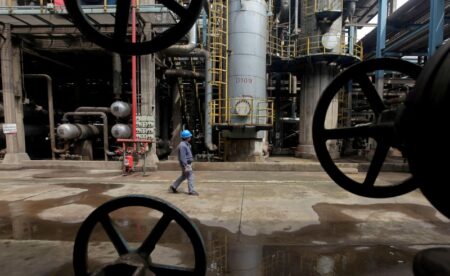By Byron Kaye
SYDNEY (Reuters) -Australia’s two dominant grocery chains have declared interests in more than 150 unrealised development sites, the antitrust regulator said, adding it was investigating whether “land banking” was hurting competition in the sector.
The Australian Competition and Consumer Commission (ACCC) said Woolworths and Coles, which together sell two-thirds of the country’s groceries, were effectively an oligopoly and it was looking into the effects of their grip on supermarket real estate.
The regulator had received submissions from market participants concerned the grocery giants were buying land to stop rivals acquiring it, which was “creating or increasing barriers to entry or expansion”, it said in an interim report on supermarket pricing published Thursday.
A final report is due in February 2025.
The land banking inquiry reveals another element of public, government and regulator pressure on the two companies which have faced intense scrutiny during two years of soaring energy, mortgage and food costs.
The federal government has said it will introduce a mandatory code of conduct covering the way big grocery retailers treat suppliers, while the ACCC sued both companies on Sept. 23 accusing them of intentionally jacking up prices to lure shoppers with fake discounts.
Woolworths and Coles had told the ACCC in submissions for its pricing review that they may hold parcels of land for long periods due to difficulties getting planning permission, construction delays and slower-than-expected population growth, the regulator said.
In a statement, Woolworths said it would review the ACCC report in detail and provide submissions in the coming months.
The ACCC said it the report it had not formed a view about whether land banking – the practice of buying land for future use – was occurring in the sector but that it would consider the issue further ahead of its final report.
The regulator says in the current context land banking occurs when a supermarket purchases land without an intention to develop that land or earlier than needed to develop that land and/or to block competitors from developing land in these locations.
It said Woolworths, the No. 1 grocer, had interests in 110 sites intended for future supermarket use, while No.2 player Coles had interests in 42 sites. It didn’t specify what stage of development the sites were at.
Australia’s third-largest grocer, Germany’s ALDI, had 9% of the grocery market after two decades, and just 13 prospective sites, the ACCC said.
“Our preliminary view is Coles and Woolworths have competitive advantages in acquiring new sites as they may be the most attractive tenants for suitable sites and have financial capacity to outbid other prospective tenants” the interim report said.
“We are considering whether this may have implications for barriers to entry and expansion for competitors, including smaller, independent supermarkets.”
Read the full article here
















